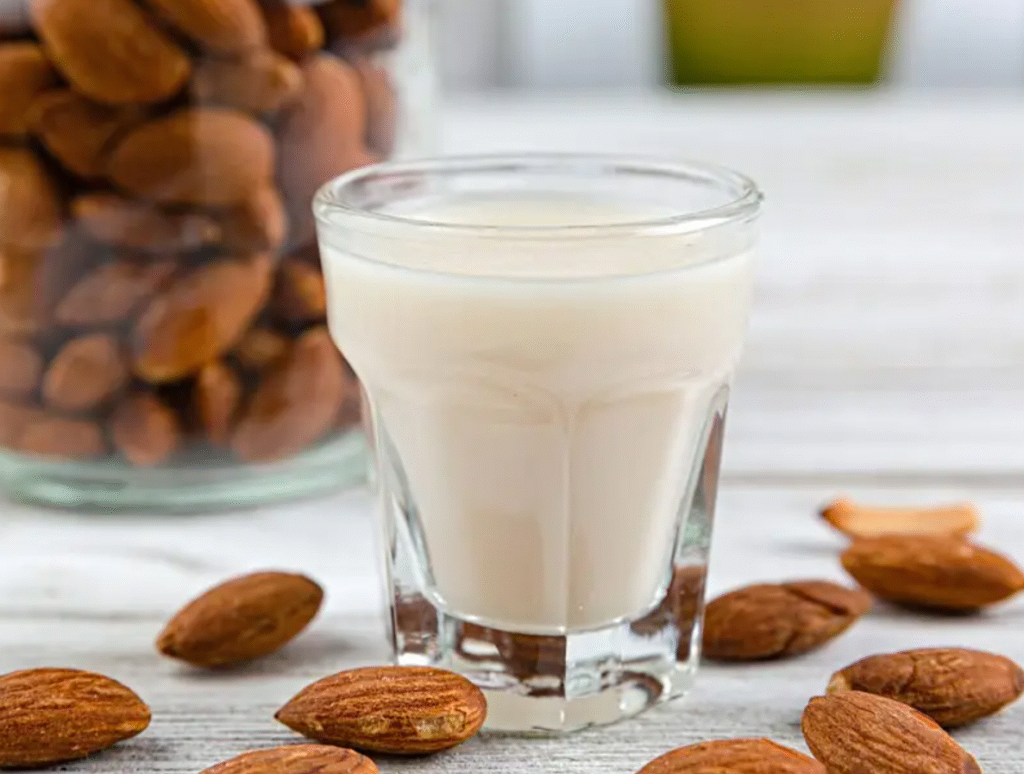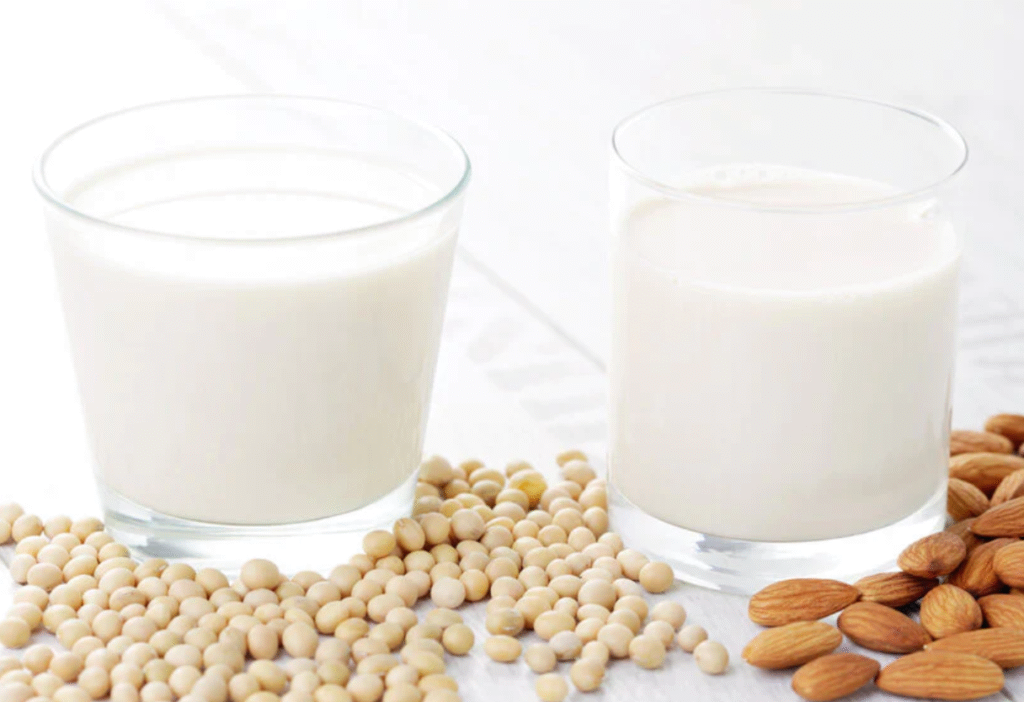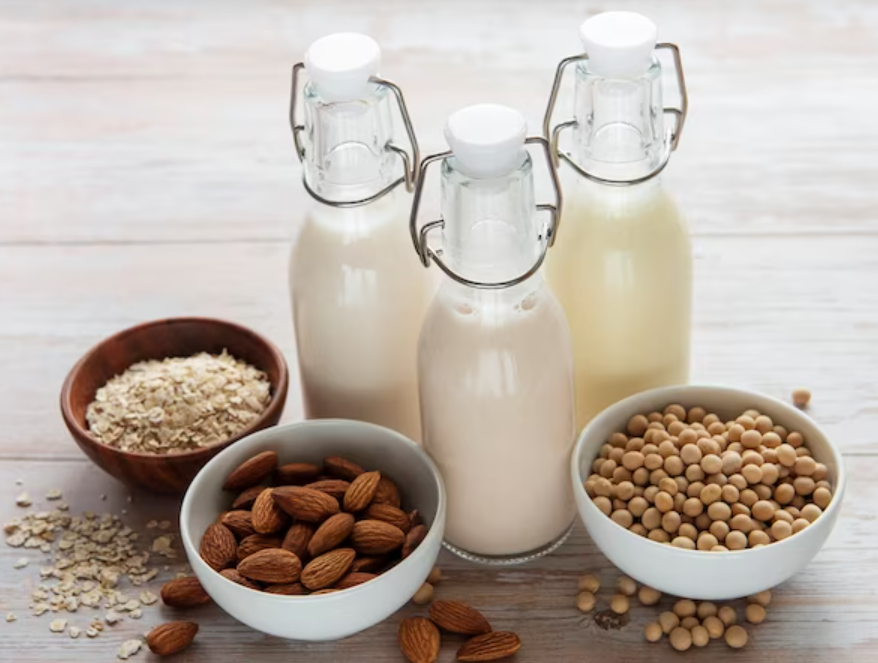Table of Contents
With the rise of plant-based diets, there is one frequently asked question on everyone’s minds: which milk alternative reigns supreme? The answer may seem complicated, but we’re here to break down the facts and make it simple for you. In this buying guide blog post, we will compare soy milk vs almond milk in order to give you a better understanding of these popular dairy alternatives so that you can make an informed decision about which kind best fits your lifestyle.
What is Soy Milk?

Soy milk is a dairy free alternative made from soybeans that are soaked, ground up and mixed with water. It has become one of the most popular plant-based alternatives to cow’s milk due to its creamy texture, versatility, and nutritional benefits. Soy milk contains more protein than almond milk, making it a great substitute for those looking for a high-protein beverage option. It also boasts essential vitamins such as vitamin D, calcium, B12 and omega fatty acids.
What is Almond Milk?

Almond milk is another non-dairy option created by blending almonds with water. Its light taste makes it ideal for baking recipes or adding to coffee drinks without overpowering the flavor of other ingredients. Unlike soy milk, almond milk is low in protein but high in healthy fat and essential vitamins that can help promote heart health. It also contains fewer calories than soy milk, making it an attractive choice for those looking to manage calorie intake.
Health Impact
Vitamins and Minerals Contained
Both soy milk and almond milk contain essential vitamins and minerals that can help promote good health. Both milks are fortified with calcium, vitamin D and B12, making them both suitable for individuals who follow vegan and vegetarian diets.
Benefits of Drinking Either Almond or Soy Milk
In addition to their nutritional benefits, both almond and soy milk may have other potential health benefits. For instance, soy milk contains isoflavones that can help reduce cholesterol levels and promote heart health. Almond milk is also high in healthy fats which can help reduce inflammation.
Taste and Texture

Soy and almond milks are both dairy-free alternatives to traditional cow’s milk, but their taste and texture differ greatly. Soy milk has a slightly beany flavor and is naturally thicker than most other plant-based milks. Almond milk, on the other hand, has a mild nutty flavor that many find to be more pleasant than soy’s flavor. It has a thinner consistency similar to skimmed cows’ milk.
Nutrition
When it comes to nutrition, soy milk contains higher levels of protein (7g per cup) compared to almond milk (1g per cup). Soy also contains large amounts of essential fatty acids and vitamins such as calcium, vitamin B12 and iron. Almond milk is low in calories, but it is also considered to be the least nutritious of plant-based milks as it contains fewer nutrients than soy.
Environmental Impact
The environmental impact of each type of milk is dependent on production methods and ingredients used. Generally speaking, almond milk has a lighter environmental footprint than soy due to its lower water requirements for growth and harvesting. Soybeans require more resources to produce which can have a greater impact on the environment.
Which One Is Healthier?

Both soy milk and almond milk are nutritious dairy alternatives that can provide essential vitamins and minerals. However, when it comes to overall health benefits, soy milk is the clear winner due to its higher protein content and beneficial fatty acids. Almond milk may be preferable for those looking for something lower in calories or with a milder flavor. Ultimately, the choice comes down to personal preference and which milk alternative best fits your dietary needs.
Frequently Asked Questions | Soy Milk vs Almond Milk
1. Is one option better for people who have allergies or intolerances?
Soy milk is often the preferred alternative for those with dairy allergies since it does not contain any dairy products; however, some people may have an allergy or intolerance to soy as well. In that case, almond milk is a great option as it is naturally lactose-free and low in calories.
2. How long do soy milk and almond milk last?
Both milks have a relatively short shelf life of around 7-10 days when stored in the refrigerator, though they can also be frozen for up to 2 months.
3. Are there any dietary restrictions or lifestyle considerations to keep in mind when choosing between the two?
Soybeans contain phytates which may interfere with the absorption of minerals such as calcium and iron, so those on vegetarian or vegan diets should consider adding other sources of these essential nutrients into their diet. Additionally, people with kidney diseases should avoid consuming too much soy as high levels of its components (isoflavones) can affect kidney function. Almond milk is suitable for those with nut allergies, but it does not provide the same high levels of protein as soy milk and therefore should not be used as a sole source of nutrition.
4. What are some common uses for each type of milk?
Soy milk is often preferred in coffee drinks because its creamy texture resembles that of dairy milk and provides a rich flavor. It is also great for baking due to its ability to bind ingredients together like eggs would do in traditional recipes. Almond milk has a mild nutty taste which makes it ideal in smoothies, oatmeal or cereal; it can also be used when making creamy sauces or soups due to its thickening properties.
5. Is one type of milk better for cooking than the other?
It really depends on what you are trying to achieve in your recipe. Soy milk is great for binding ingredients together and creating creamy textures, while almond milk can provide a thick and rich consistency when used in sauces or soups.
6. What is the best way to store each type of milk?
Both soy and almond milks should be stored in the refrigerator and consumed within 7-10 days from opening; however, they can also be frozen for up to 2 months before being thawed out and used again. For optimal freshness, it’s best to always check the expiration date on the package before drinking or using either type of milk in your recipes.
Bottom Line
Ultimately, the choice between soy milk and almond milk is up to you. Both milks offer a variety of nutritional benefits that can help promote good health. Consider your lifestyle needs and dietary requirements before making a decision on which kind best fits your needs. If you’re looking for a higher-protein option, choose soy milk. If you’re aiming for a thinner texture, almond milk is your best bet.
Read more at Ohsnap Cupcakes!